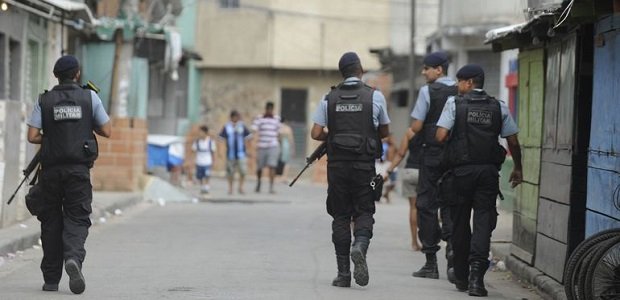To reduce deaths of young black people, the government wants to increase the use of cameras in police officers, a measure already adopted in 12 states. Three ministries were selected to take part in the project: Justice and Public Security, Racial Equality and Human Rights.
Among the proposals analyzed by the government is encouraging the use of cameras in cars and police uniforms, in addition to reviewing the training of officers and suggesting new approach protocols by the security forces.
According to the last Brazilian Yearbook of Public Security, from 2022, blacks and browns account for 77.6% of violent deaths, compared to 21.7% of white victims. The category considers intentional homicide, theft followed by death and bodily injury followed by death. Of the total number of violent deaths in the period, 12.9% occurred in police actions.
The Minister of Human Rights, Silvio Almeida, said that the ministries will have a meeting in the coming weeks to define an inter-ministerial working group and the government will listen to researchers and social movements to collaborate with the plan. For the minister, reducing police lethality involves supporting the training of officers and the use of instruments that prevent the abusive use of force, such as policies for installing cameras in uniforms.
This Content Is Only For Subscribers
To unlock this content, subscribe to INTERLIRA Reports.
Facial Recognition
Another discussion on the federal government’s radar is improving personal recognition. Last month, the National Council of Justice approved a resolution with parameters for the procedure, such as the orientation that the recognition of a suspect of committing a crime be done preferably live, with a line-up of four people. If this is not possible, the police must produce four photographs. In addition, the entire procedure must be recorded. Studies show that most people mistakenly recognized as suspected of committing crimes are black.
Expansion Across the Country
The implementation of cameras in police uniforms has been debated more and more in the country. In addition to São Paulo, 11 other states have already adopted the measure, or at least started tests. Among them are Bahia, which announced the measure earlier this year, and Minas Gerais, where the method is in the testing phase.
Acre, Amapá, Ceará, Pará, Piauí, Rio de Janeiro, Rondônia, Roraima, Santa Catarina and Tocantins have also adopted the equipment. According to Robson Rodrigues, an anthropologist specializing in public security, the federal government cannot determine the measure for all police forces. But it has the possibility of inducing this policy, attracting governors with transfers of resources through the Unified Public Security System and providing technical support.




